Evangeline (Piano/Vocal Score)
-
Ships in 1 to 2 weeks
Details
Description
SKU: EC.8513
Composed by Gwyneth W. Walker. One Act/Chamber Opera. 21st Century. Score. Duration 50:00 - 60:00. E.C. Schirmer Publishing #8513. Published by E.C. Schirmer Publishing (EC.8513).ISBN 600313485138. UPC: 600313485138.
Libretto:
Based on the poem Evangeline by Henry Wadsworth Longfellow (1807-1882), adapted by Gwyneth Walker
Synopsis:
A chamber opera in one act, Evangeline tells the story of the expulsion of the Acadian people from Nova Scotia in 1755-64. Forced into exile by the British, the Acadians were separated from one another, and traveled the US and abroad in search of loved ones. Many Acadians resettled in Southern Louisiana, and became known as 'Cajuns.'
Henry Wadsworth Longfellow wrote his poem, 'Evangeline,' in 1847. Although the characters are fictitious, their story represents a very real and tragic series of events.
The opera focuses on the plight of Evangeline, a young Acadian woman. She is betrothed to her childhood sweetheart, Gabriel. However, before they can marry, the British soldiers come to their town and force the residents from their homes. Evangeline and Gabriel are separated. They travel the United States searching without success for one another, from the Western plains to Southern Louisiana. As her hope of finding Gabriel diminishes, Evangeline turns to her Catholic faith to sustain her. During the last years of her life, she becomes a Sister of Mercy, tending to the poor and the sick. It is there, nursing the ill, that she finds Gabriel, on his deathbed. Their hearts join forever, and Evangeline bows her head to say, 'Father, I thank Thee.'
Several Acadian musical elements are woven into this opera. A French/Acadian dance tune, Tous Les Bourgeois de Chartre, opens and closes the music. This song was mentioned within the Longfellow poem as a fiddle tune associated with Acadian culture. In addition, the chant (plainsong) Ave Maris Stella (Greetings to the Star of the Sea) appears throughout the story. In the 19th-century, French words were added to this song to form the Acadian National anthem. - Gwyneth Walker
| Roles: | |
| EVANGELINE BELLEFONTAINE | Soprano |
| BENEDICTA BELLEFONTAINE (mother of Evangeline) | Alto |
| GABRIEL LAJEUNESSE | Tenor |
| FATHER FELICIAN (the village priest) | Baritone |
| NARRATOR |
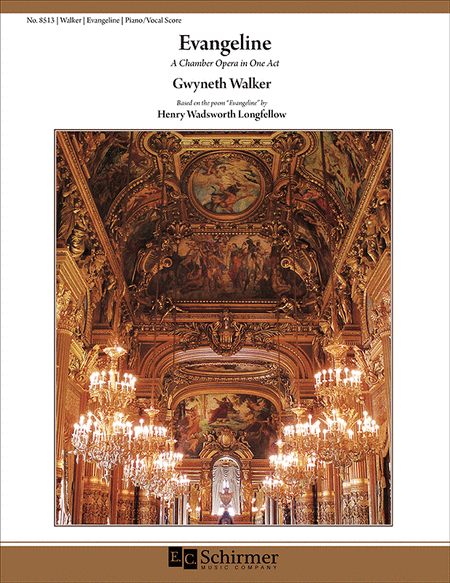

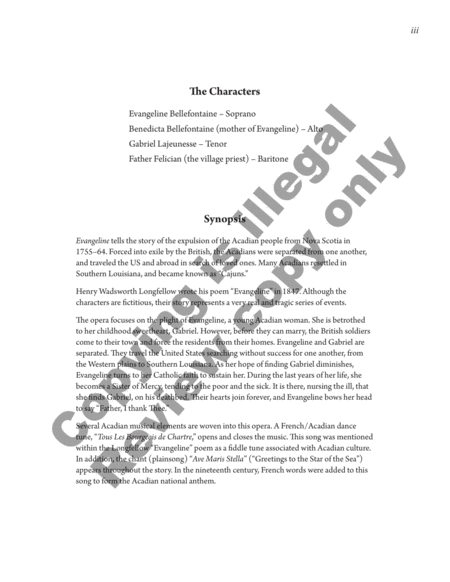
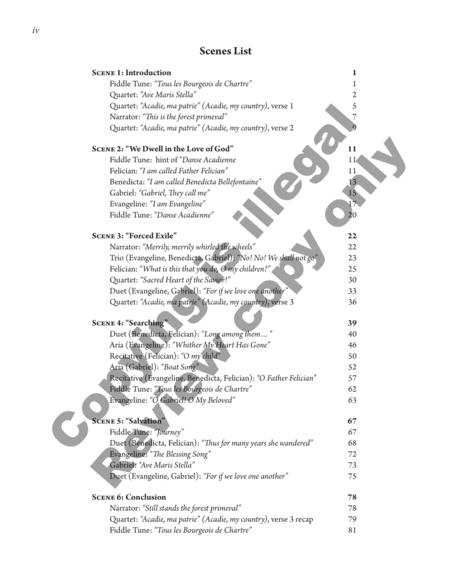
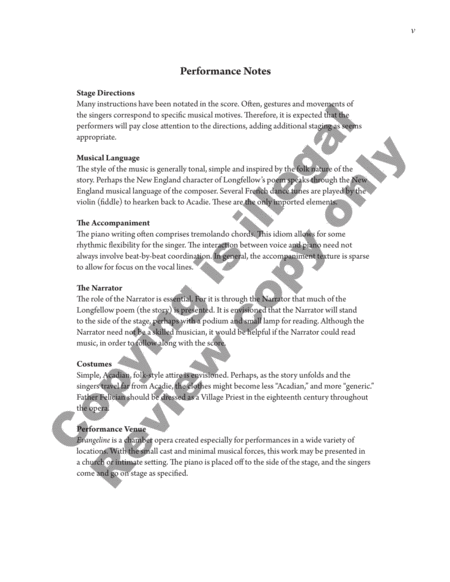
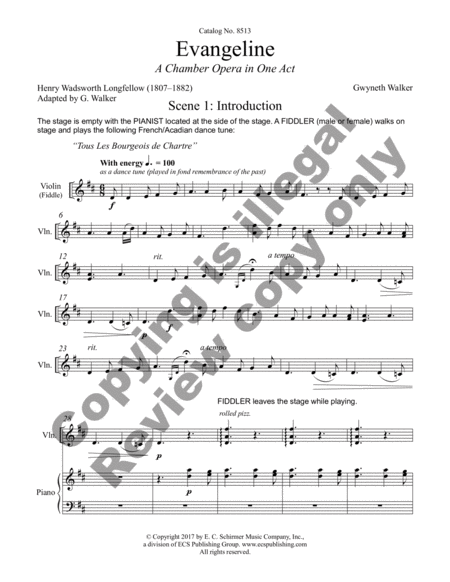
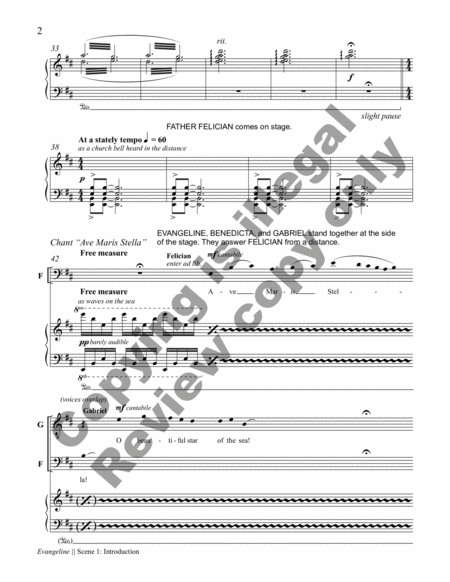
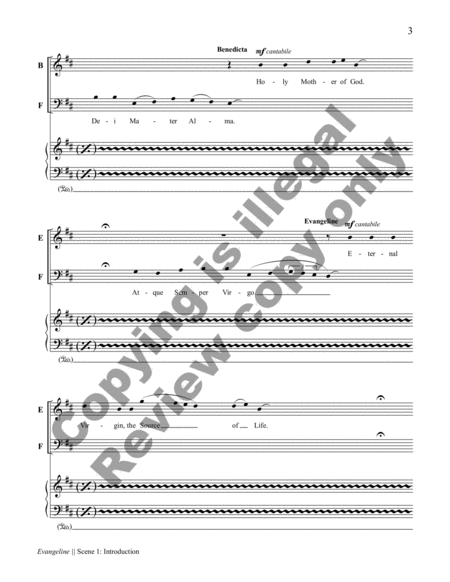
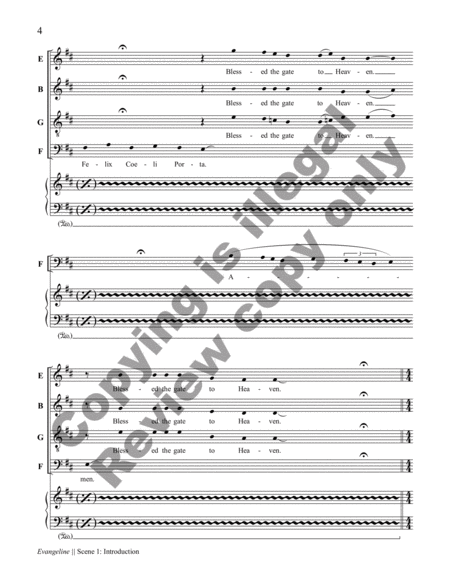
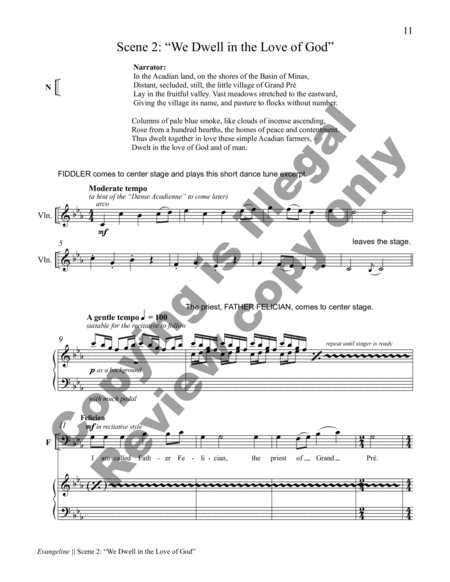
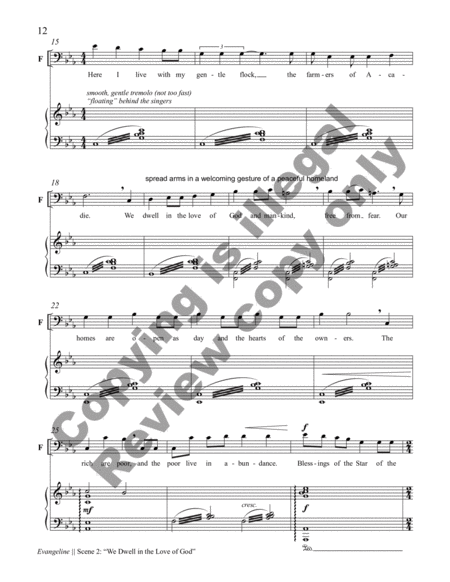
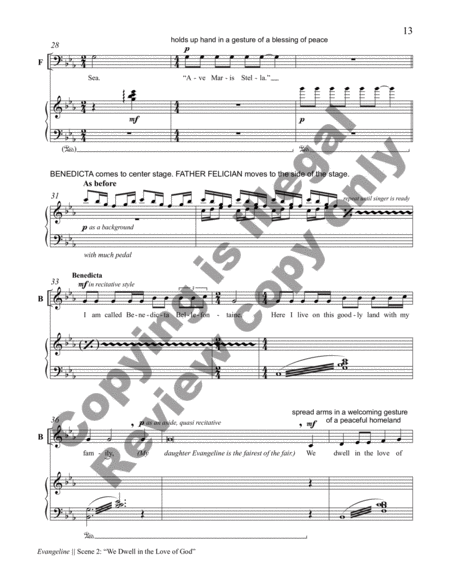
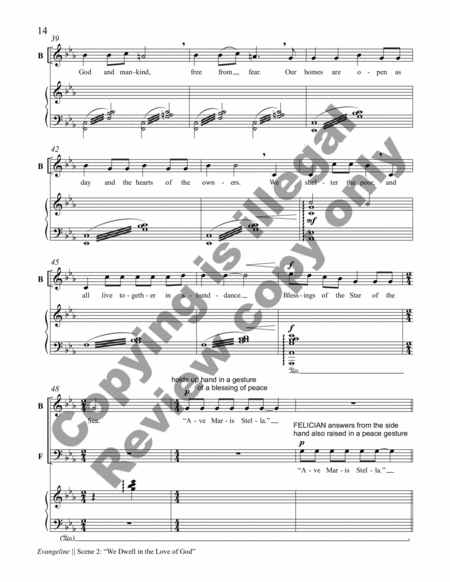
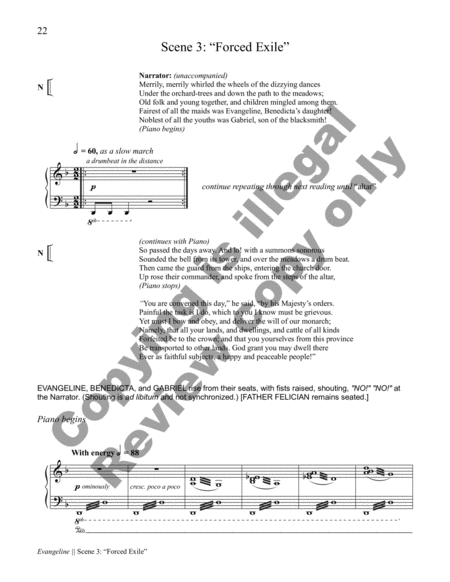
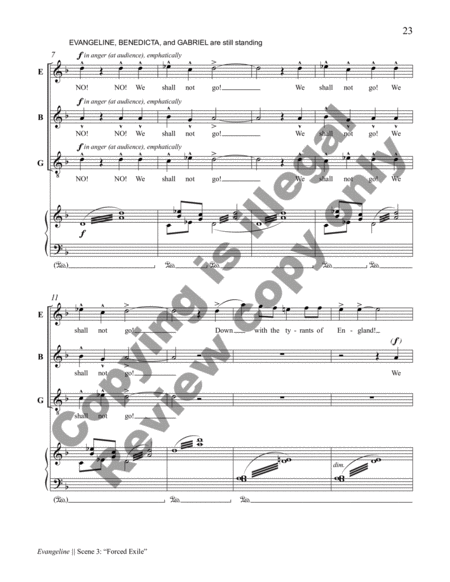
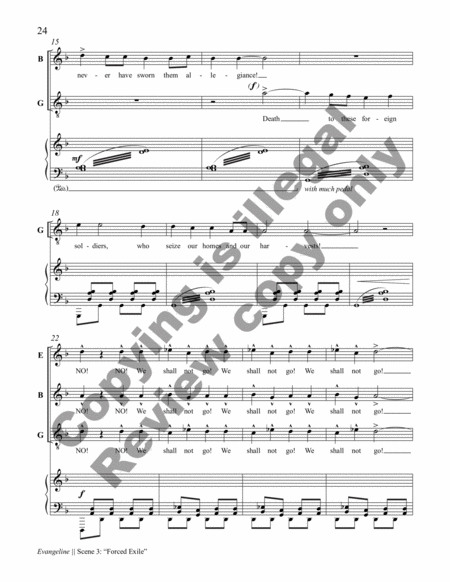
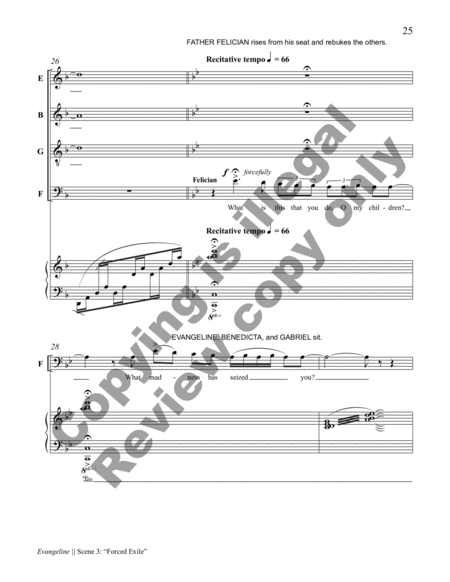
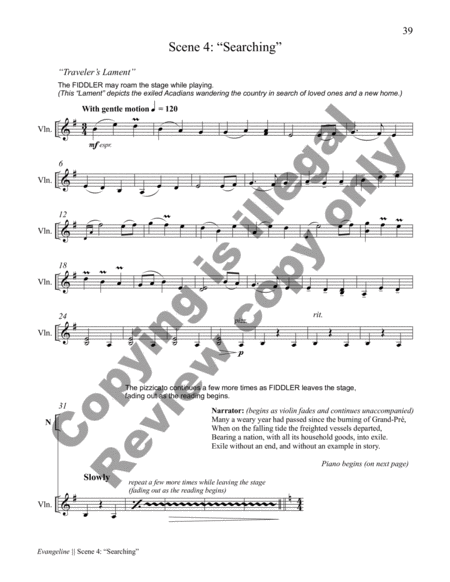
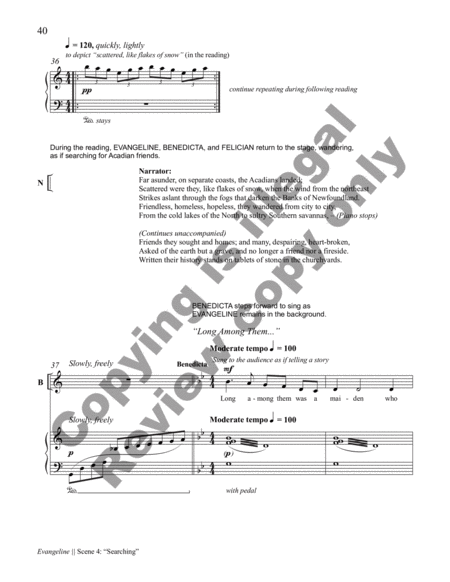
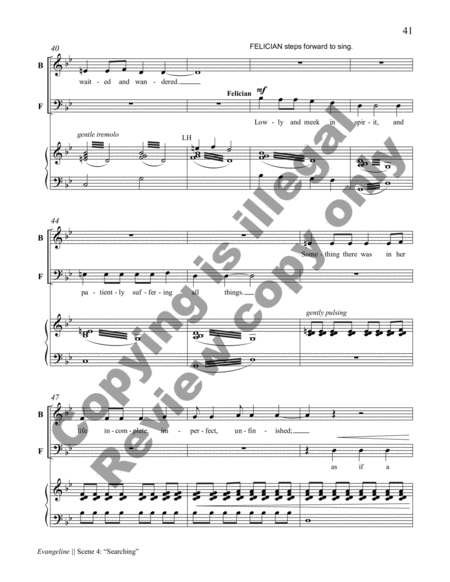
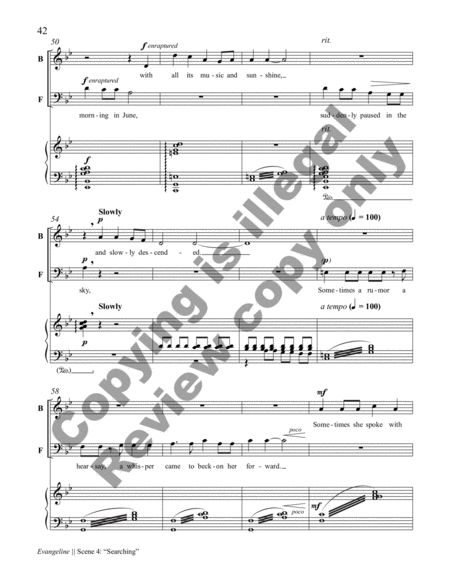
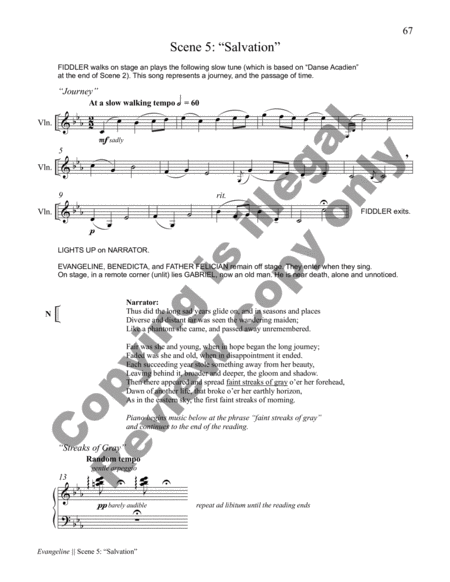
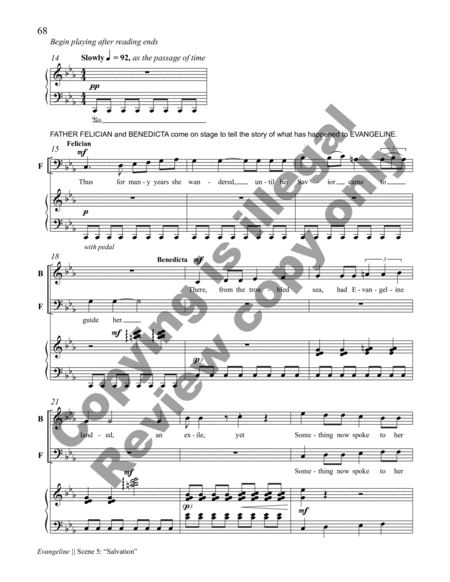
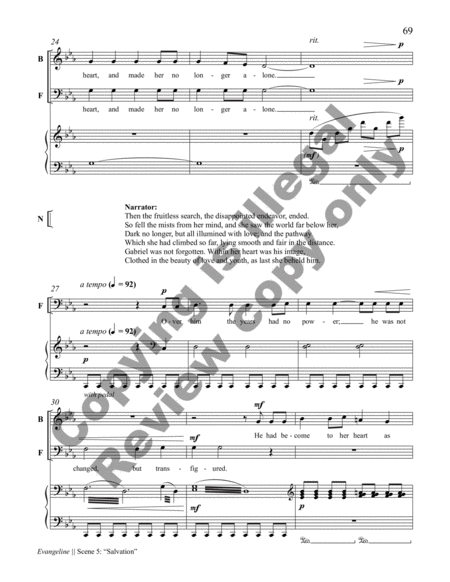
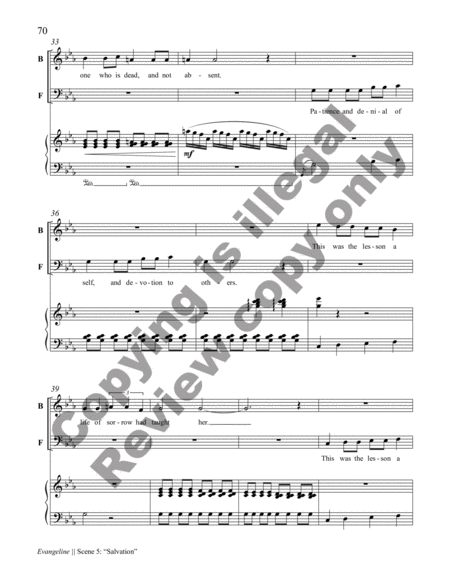
 Share
Share